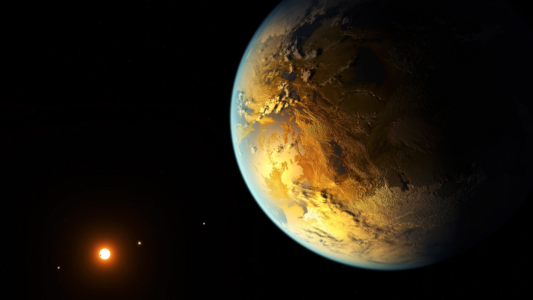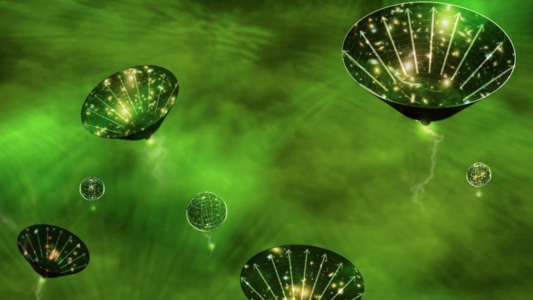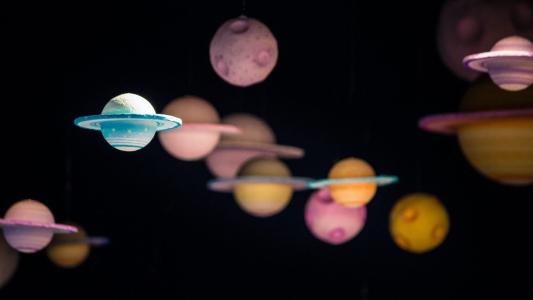Astronomy
Twin exoplanets may be the first known “water worlds”
Twin exoplanets 218 light years from Earth may be the first known examples of “water worlds.”
An Earth-sized planet found in the habitable zone of a nearby star
For a long time, only two habitable zone planets of any size were known to astronomers: Earth and Mars. But NASA's discovered another.
Scientists discover two brand new minerals in massive meteorite
A massive, 4.5-billion-year-old meteorite located in Somalia contains two new minerals never seen before in nature.
Are we living in a baby universe that looks like a black hole to outside observers?
If the black holes that form in our cosmos give birth to baby Universes, perhaps we arose from the formation of a black hole ourselves.
Ancient killer asteroid created a megatsunami on Mars
3.4 billion years ago, an asteroid impact created a megatsunami on Mars that extended for 1500 kilometers. Here's the fascinating story.
What the new Earth-threatening asteroid means for humanity
In a remarkable achievement, three new large asteroids have been found in the most elusive place: inside the orbit of Earth.
Astronomers detect “mystery molecule” in exoplanet’s atmosphere
Thanks to the James Webb Space Telescope, we now know more about the atmosphere of WASP-39b, a distant gas giant, than any other exoplanet.
What is the largest planet out of all the ones we know?
The "upper limit" to the size of our planets is exceeded in other stellar systems, but double Jupiter's radius seems to be the limit.
NASA “Flashlight” will hunt for hidden water on the moon
NASA’s Lunar Flashlight mission will use reflections from laser light to measure lunar water hidden in permanently shadowed craters.
Meteorite blasts “biggest new crater” NASA has ever seen into Mars
A meteorite impact that caused a marsquake and created a massive new Mars crater could shape our plans to send people to the Red Planet.









